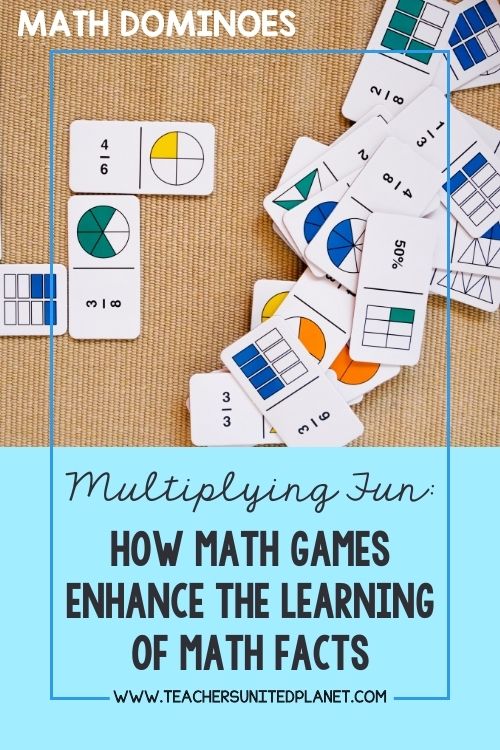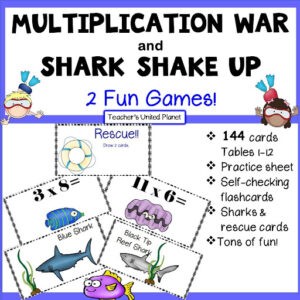When it comes to mastering math facts, most students, teachers and parents think of rote memorization and boring drills. Incorporating math games into the learning process can transform the experience, making it engaging, enjoyable, and ultimately more effective. In this blog post, we’ll explore how they can help students learn math facts in a fun and interactive way.
1. Math Games Encourage Engagement and Motivation
Traditional methods of learning math facts can quickly become monotonous and uninspiring for students. Math games provide an opportunity to inject excitement and enthusiasm into the learning process. By incorporating elements of competition, teamwork, and rewards, games motivate students to actively participate and engage with the material. The pure joy of playing games helps sustain students’ interest and encourages them to persevere through challenges.
2. Math Games Reinforce Concepts
Math games offer a dynamic platform for reinforcing math concepts in a variety of contexts. Whether through digital games, board games, or interactive activities, students have the opportunity to apply and practice math facts in different ways. This reinforcement helps solidify their understanding of the relationships between numbers and builds fluency.
3. They offer Personalized Learning
Math games can be easily tailored to accommodate students’ individual learning styles, preferences, and skill levels. Teachers and educators can select games that cater to specific learning objectives and adapt them to meet the needs of diverse learners. Whether students prefer visual, auditory, or kinesthetic learning experiences, there are games available to accommodate various preferences and promote personalized learning.
4. Math Games Foster Collaboration and Communication
Many math games involve collaboration and communication among students, fostering a sense of teamwork and camaraderie in the classroom. Through cooperative gameplay, students have the opportunity to discuss strategies, share insights, and learn from one another’s approaches to solving multiplication problems. This collaborative environment not only enhances the learning experience but also cultivates important social and communication skills.
5. Math Games Support Long-term Retention
Research has shown that engaging in enjoyable activities, such as playing games, can lead to better retention of information over the long term. By making learning math facts a fun and memorable experience, math games help solidify students’ understanding and retention of essential mathematical concepts. The positive associations formed through gameplay can contribute to sustained motivation and continued growth in mathematical proficiency.
Incorporating math games into the curriculum is a powerful strategy for helping students learn math facts effectively while enjoying the learning process. This math game bundle will have your students excited about learning math facts! So, let’s roll the dice, shuffle the cards, and embark on an exciting journey of multiplying fun and learning!
Interested in giving games a try?
Click here to check out this bundle.

Looking for games to teach a specific skill?
First, grab a copy of my math games freebie located in the sidebar of this page. If this isn’t what you need, I’d love for you to message me using the contact form here so I can help you out.








